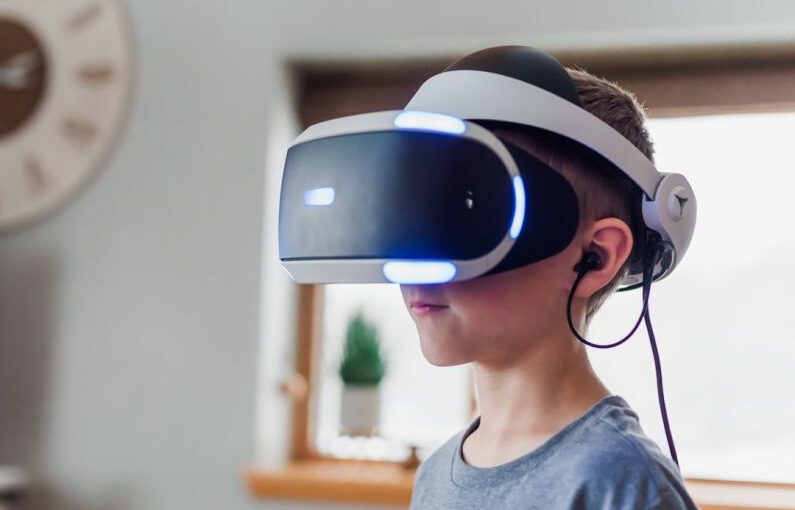Virtual Reality: Shaping the Future of Entertainment
In a world where technology continues to advance at a rapid pace, virtual reality (VR) has emerged as a revolutionary force in the realm of entertainment. With its ability to transport users to immersive digital environments, VR offers a level of engagement and interactivity that traditional forms of media simply cannot match. As the technology behind VR continues to evolve and improve, it is becoming increasingly clear that virtual reality is poised to become the future of entertainment.
Immersive Experiences
One of the key reasons why virtual reality is the future of entertainment is its unparalleled ability to create immersive experiences for users. Unlike traditional forms of media, such as movies or video games, which are viewed on a screen, VR allows users to step inside a virtual world and interact with their surroundings in a way that feels incredibly real. Whether exploring a far-off alien planet, solving puzzles in a mysterious castle, or participating in a thrilling adventure, the level of immersion provided by VR is unmatched.
Interactivity and Engagement
Another factor that sets virtual reality apart as the future of entertainment is its emphasis on interactivity and engagement. In a VR environment, users are not passive observers but active participants in the experience. This level of interactivity allows for a deeper connection with the content and a greater sense of agency in shaping the outcome of the narrative. Whether through making choices that impact the story, solving puzzles to progress, or engaging in multiplayer experiences with friends, VR offers a level of engagement that keeps users coming back for more.
Diverse Applications
Virtual reality is also shaping the future of entertainment through its diverse range of applications across various industries. While VR is commonly associated with gaming, its potential goes far beyond just entertainment. From virtual tours of real-world locations to immersive training simulations for professionals, VR is being utilized in fields such as education, healthcare, architecture, and more. The versatility of VR technology opens up a world of possibilities for creating engaging and impactful experiences that cater to a wide range of interests and needs.
Social Connection
One of the most exciting aspects of virtual reality as the future of entertainment is its ability to foster social connection in a digital space. With the rise of social VR platforms and multiplayer experiences, users can interact with others in virtual environments in ways that mimic real-life interactions. Whether attending virtual events, collaborating on projects, or simply hanging out with friends in a virtual space, VR provides a sense of presence and connection that transcends physical distance. As social interactions continue to move online, virtual reality offers a unique opportunity to bridge the gap and bring people together in new and exciting ways.
Accessibility and Inclusivity
Virtual reality is also making strides towards a more accessible and inclusive form of entertainment. As VR technology becomes more affordable and user-friendly, barriers to entry are being lowered, allowing a wider audience to experience the magic of virtual reality. Additionally, VR has the potential to create inclusive spaces where individuals of all abilities can participate in experiences that may not be possible in the physical world. By prioritizing accessibility and inclusivity, virtual reality is paving the way for a more diverse and equitable future of entertainment.
In Conclusion: Embracing the Virtual Future
As virtual reality continues to push the boundaries of what is possible in entertainment, it is clear that the future of the industry lies in the immersive, interactive, and diverse experiences that VR has to offer. From creating immersive worlds to fostering social connections and promoting inclusivity, virtual reality is transforming the way we engage with entertainment. As technology continues to evolve and VR becomes more mainstream, the possibilities for the future of entertainment are truly limitless. Embracing the virtual future means embracing a new era of entertainment that is as exciting as it is innovative.





